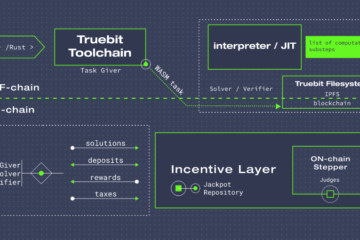The economy of the fittest

In the globalization, competition for physical labor grew, turning business into offshoring physical intensive tasks and factories to lower wage countries. Thousands of families -and the economy in general- have been affected in the west with the closing of many factories due to the offshoring.
With coronavirus accelerating the transition into remote work, is now clear that this trend will be a standard. Remote work creates a transition to a new globalization where not only physical labor can be offshored but also most of the computerized and intellectual work. This means that a huge percentage of the jobs of your country will be in competition with the whole world. What was 10 years ago something for pioneers or visionaries is now a reality for many people.
What implications does it have for you? Will your role be offshored? Can you do something today to be better positioned in this future society? Let’s see.
Why remote work will be a standard
Maybe you don’t think remote work is that important. I think it is. Remote work brings advantages to both parties, the employer and employee.
For employees:
- They can reside wherever they want. Countryside, city, east, west… Access to lower cost homes. Possibility to live in places with higher quality of life.
- Avoiding commuting and maybe even having a car. Less costs and more time.
- Ability to access to higher wage countries jobs.
- Allows to have better family conciliation.
For companies:
- They get more offer of candidates. Access to more talent.
- Forces them to measure performance based on results, not on time invested. Better results.
- Allows to offshore jobs internally. Jobs can be performed on a lower wage country but having them on staff.
- Allows them to hire people from cultures that better match their values. Easier to fulfill their mission.
Implications of remote work
Any company will be able to hire people from anywhere based on their skills for a price that could be lower or higher -I don’t think that even matters-. What matters is that will be based on skills.
This implies that suddenly for some type of work now instead of competing with your country equivalents now you’re competing with talent worldwide. Those hard workers from all over the world will be now competing for the same position than you.
This will break the game so hard I can’t even imagine. It is already happening, but it will take a while to spread. As more companies adopt this new paradigm and become more competitive, the rest will follow and the transition will accelerate.
Countries will start competing for talent. You won’t need to be at Silicon Valley to do high tech work. That is a huge opportunity for cities and countries to capture those high paying jobs. The actual clearest case is the Mayor Suarez of Miami which is already attracting Silicon Valley talent due to his willingness to hear and help companies.
Cryptocurrencies will accelerate the transition
This will accelerate when people aren’t bound to their local currencies thanks to crypto. Another barrier will be broken. No middleman will be required. I bet for an even more distributed wealth allocation across the globe.
As Bitcoin prices keep rising other countries that currently are not even considered as competition will be able to develop faster. Nigeria is already 2º country in BTC volume, Nigeria can suddenly become a very powerful nation.
Towards a more equal world
We have currently two disrupting factors that will help to redistribute the wealth across the world even faster and more efficiently than the first globalization. Remote work and crypto.
If one of your values is social justice and world equality you will be happy. But you have to keep in mind that you will have to compete with lots of developing countries and ultimately with the whole world. Your complains won’t matter. Good thing is that I assume that as the more talented people get the jobs, the world production, efficiency and quality of life will increase, that cannot be bad.
In the economy of the fittest, only the people that adds more value will be able to compete. The rest is not clear what role will they have or how they will be be able to fit in this new society. The world will be more equal geographically, but that doesn’t mean that there still won’t be society layers.
This is my thesis as of today. If it becomes true, can you do something to be in a better position in the future? I think yes, and you shouldn’t care if my thesis is right.
Preparing for the uncertain future
First of all you should know that if your job can be automatable, it will be. Robots are already replacing jobs since many years ago. Now AI is also helping with some “intellectual” work. Keep an eye of the trends, if you see a prototype of something that remotely does even in a very inefficient way what you’re doing, get prepared to be replaced.
Learn things that are not easily automatable, find skills that are hard for an AI to learn. Or just use it. Develop specific knowledge by mixing domains that are not usually crossed. Build a side hustle. Create. Make your 1000 true fans. Find your niche. Get a job where empathy is mandatory.
Or just be better than everyone else, someone has to be the best.
Conclusion
Remote work is starting a new globalization. Crypto will accelerate it. Competition will be worldwide and you should be prepared. Avoid being replaceable at all costs.
If you want to stay ahead and avoid being replaceable, subscribe to my newsletter.


